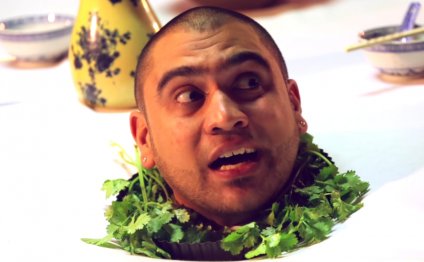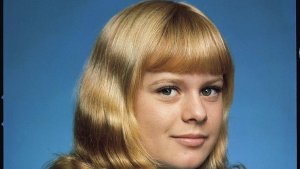
Australian female music artists
 Music
Music
1960s star: Little Pattie.
Ask someone to name an Australian female pop singer of the 1960s, and most likely they’ll come up with Little Pattie, best known for her 1963 hit He’s My Blonde Headed, Stompie Wompie, Real Gone Surfer Boy. Ask again, and chances are you’ll draw a blank. At a pinch, some folk of a certain vintage might recall names such as Lynne Randell, Noeleen Batley and Betty McQuade, but for the most part Australia has forgotten its '60s pop girls, or else never paid them much attention in the first place.
The US has legends such as Nancy Sinatra, Dionne Warwick, Cher and innumerable others (as well as the whole girl-group genre of the Shangri-Las, the Shirelles and the Crystals). Britain has swinging stars such as Lulu, Petula Clark and the grand dame of the decade, Dusty Springfield. Even French singer Francoise Hardy is probably more famous in Australia than her local counterparts. So why aren’t our pop women of the 1960s more celebrated?
Effervescent singer Marcie Jones, first a solo artist and later of Marcie & the Cookies, believes recording labels of the era were less willing to take a chance on female artists. ‘‘Girls were harder to push in those days, because most of the kids that went to concerts and bought records were young girls, and they wanted to hear the boys, ’’ she says.
Backing band: Marcie & The Cookies.
It’s true that the decade is littered with flop singles by could-have-beens, given just the one stab at stardom before being cast aside. Jones got to cut just one single by herself (the wonderful Quiet from 1965), and only two with the Cookies, before a 1973 solo album That Girl Jones. Even the likes of Olivia Newtown John, Denise Dysdale and Jacki Weaver had obscure one-off releases in the 1960s, dropped by their labels before finding fame years later.
As a whole, Australia isn’t great at valuing its own artistic history. We’ve long held the opinion that anything good has to come from overseas. But it seems within that cultural cringe there’s another cringe, that of women playing second fiddle to the men.
Singing their praises: Colleen Hewett was in a band from the age of 12.
‘‘No matter how many hit records a female singer had, if she was appearing on a bill with male performers, she would never top the bill, ’’ recalls Patricia Amphlett, speaking of the time when she was better known as Australia’s surfie sweetheart, Little Pattie.
Colleen Hewett is much loved for her soulful ''70s hits, including Day By Day, but she has been singing on stage since 1962 and found her early mojo in funky big band The Laurie Allen Revue.
‘‘It’s pretty simple, ’’ she says, when asked why Australia’s ’60s pop women have faded into obscurity. “If you’re not getting asked to do television shows, not getting asked to do gigs, you’re getting forgotten.’’
Little Pattie is in many ways the exception to the rule. She continued to work well beyond her initial run of success, and still regularly performs today. ‘‘I just kept working, ’’ she says. ‘‘Whereas I know some female performers stopped, retired early or decided to do the full-time family thing.’’
The ‘‘full-time family thing’’ surely cut short the careers of many ’60s singers, although the decision was often not theirs to make. ‘‘It was either/or, ’’ says Amphlett. ‘‘Especially in the early ’60s, you either had a family or you had a career. You didn’t have both.’’
Marcie Jones, for one, chose her career over love and marriage. She was dating heartthrob singer Normie Rowe when he was drafted to serve in Vietnam in 1969, and was expected to be in Melbourne waiting for him on his discharge a year later. Instead, Jones took off on a tour of southeast Asia with the Cookies, and eventually landed in London, where the band spent time as Cliff Richard’s backing vocalists.
‘‘I’ve never lived that down, ’’ she says now. ‘‘Norm wanted us to get married before he went to Vietnam, and he wanted me at home waiting. But I was 23 years old and I wanted to see the world. By the time I got home he’d met someone else.’’
Hewett says that to be a young woman in a male-dominated sphere like Australian ’60s rock’n’roll, you had to toughen up. ‘‘There I was at the age of 12 in a band with all guys, most of them married, ’’ recalls Hewett of her beginnings in Bendigo, singing every weekend with local group the Esquires. ‘‘I suppose I did pick up a bit of guy attitude. There was no point being wishy-washy. It’s a tough business, and I just dished out what was dished up to me. But it never got ugly, we all just had an understanding.’’
If they weren’t well represented on record, female singers still found regular work at dances, package tours, and on television shows such as Melbourne’s The Go! Show or Saturday Date in Brisbane. Broadcast into homes around the nation, these women were busy, hard-working and widely known at the time, but 50 years later the recorded evidence is limited to a few grainy YouTube clips.
So with labels, audiences and societal attitudes all stacked up against them, is it any wonder that we celebrate the likes of John Farnham, Johnny Young and Normie Rowe, but scratch our heads when it comes to Joy Lemmon, Judy Cannon and Marcie Jones?
Five decades later, a reappraisal is long overdue. The wealth of uplifting, tear-jerking, raucous or just plain joyous music recorded by Australian women in the 1960s is a national treasure trove, and shouldn’t languish unremembered.
There’s 15-year-old Brisbanite Toni McCann, who cut just the one single in 1965, but whose two songs No and My Baby are as tough and raucous as anything by Oz garage rock icons Lobby Loyde or The Missing Links. After the single went nowhere, McCann promptly disappeared and has hardly been heard of since.
Then there’s Judy Cannon, who went from singing with the Thunderbirds in late '50s Melbourne to recording in England with maverick producer Joe Meek and a pre-Led Zeppelin Jimmy Page. Copies of her British recordings now change hands for big sums.
YOU MIGHT ALSO LIKE



Share this Post
Related posts
Famous female music artists
The Supremes photographes in 1964. Redferns/Getty Images At Billboard.com, we ve celebrated our second annual by looking…
Read MoreBlack female music artists
Black female singers have taken the industry by storm since the inception of the music industry. From the Blues to Jazz to…
Read More










